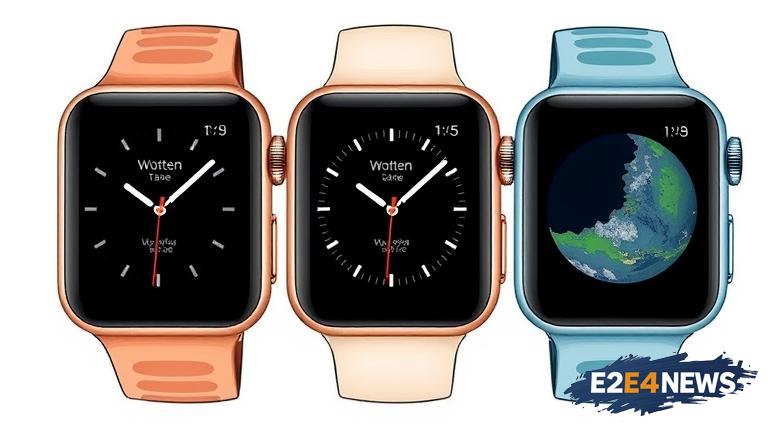A recent study has raised questions about the environmental impact of the Apple Watch, suggesting that the device may not be as carbon neutral as Apple claims. The report, which analyzed the production and distribution of the Apple Watch, found that the device’s carbon footprint is significantly higher than previously thought. This news has sparked concerns among environmentalists and consumers, who are increasingly demanding more sustainable and eco-friendly products from tech companies. Apple has long been a leader in the tech industry, and its commitment to reducing its environmental impact has been widely praised. However, this new report suggests that the company may not be doing enough to reduce its carbon footprint. The Apple Watch is one of the company’s most popular products, and its production and distribution have a significant impact on the environment. The report found that the device’s carbon footprint is primarily due to the production of its components, such as the battery and electronics. The study also found that the transportation of the devices from the factory to the consumer also contributes to the device’s carbon footprint. Apple has set a goal to become carbon neutral by 2030, but this new report suggests that the company may not be on track to meet this goal. The company has made significant strides in reducing its environmental impact in recent years, including investing in renewable energy and reducing waste. However, the report suggests that more needs to be done to address the environmental impact of the Apple Watch and other products. The news has sparked a debate about the environmental impact of the tech industry, and the need for companies to be more transparent about their sustainability goals. Consumers are increasingly demanding more sustainable products, and companies that fail to meet these demands may face backlash. The report’s findings have also raised questions about the effectiveness of carbon offsetting, which is a common practice among companies looking to reduce their environmental impact. Carbon offsetting involves investing in projects that reduce greenhouse gas emissions, such as wind farms or reforestation projects. However, some critics argue that carbon offsetting is not an effective way to reduce a company’s environmental impact, and that more needs to be done to address the root causes of pollution. The Apple Watch is not the only product that has been criticized for its environmental impact. Many tech products, including smartphones and laptops, have been found to have significant carbon footprints. The production and distribution of these devices require large amounts of energy and resources, and can result in significant greenhouse gas emissions. The report’s findings have also highlighted the need for greater transparency and accountability in the tech industry. Companies must be more open about their sustainability goals and progress, and must be willing to make significant changes to reduce their environmental impact. The news has sparked a call to action, with many consumers and environmentalists demanding that Apple and other tech companies take more aggressive action to reduce their environmental impact. The report’s findings have also raised questions about the role of government regulation in addressing the environmental impact of the tech industry. Some argue that stricter regulations are needed to ensure that companies are meeting their sustainability goals, while others argue that voluntary action is sufficient. The debate highlights the complexity of the issue, and the need for a multifaceted approach to addressing the environmental impact of the tech industry. Ultimately, the report’s findings suggest that Apple and other tech companies must do more to reduce their environmental impact, and that consumers and governments must hold them accountable for their sustainability goals.
